Because tough toilet paper can be harsh on skin, many people prefer to use wet wipes when cleaning up after a bowel movement. The recent introduction of flushable wipes has led some people to decrease or eliminate their use of toilet paper. Despite the claim in their product title, flushable wipes may not be suitable for residential or municipal plumbing systems.
See now: Finding out about the leading wet wipes manufacturer
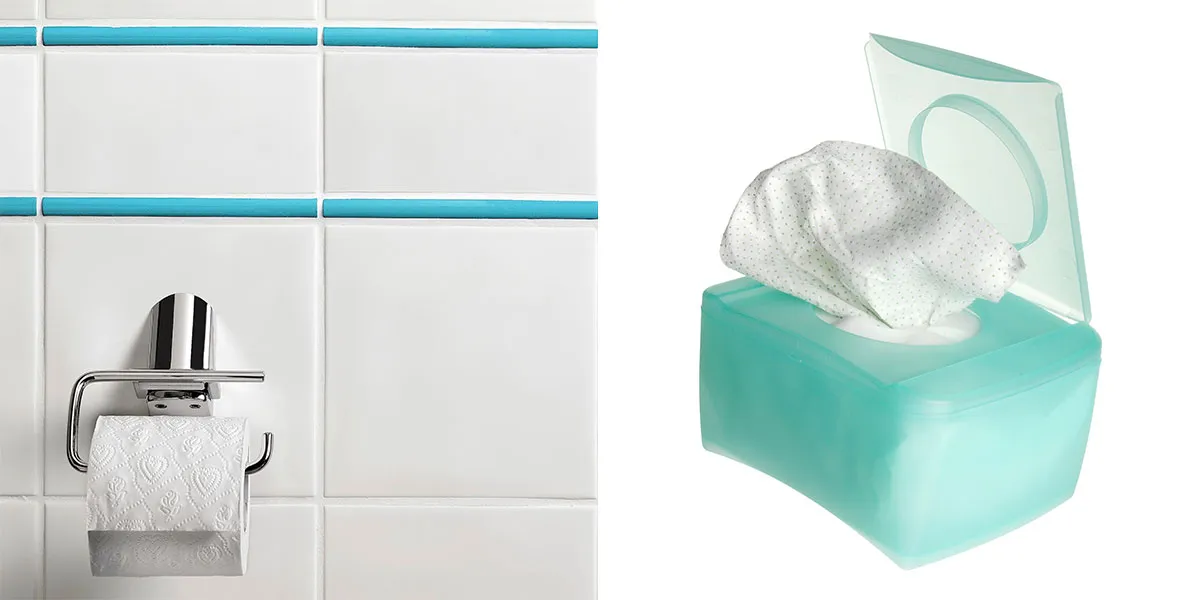
Flushable wipes may cause problems for plumbing systems in homes or other buildings
Why does the label “flushable” on a product cause it to be harmful if flushed?
Flushable wipes, which are marketed as a cleaner alternative to standard cleaning wipes, are designed to be flushed down the toilet, but they often cause problems when they clog pipes and pumps. One of the main reasons for this is that there is no industry-regulated criterion for determining what does or does not make a wipe flushable. Instead, manufacturers have come up with their own loose criteria for making wipes that can be flushed.
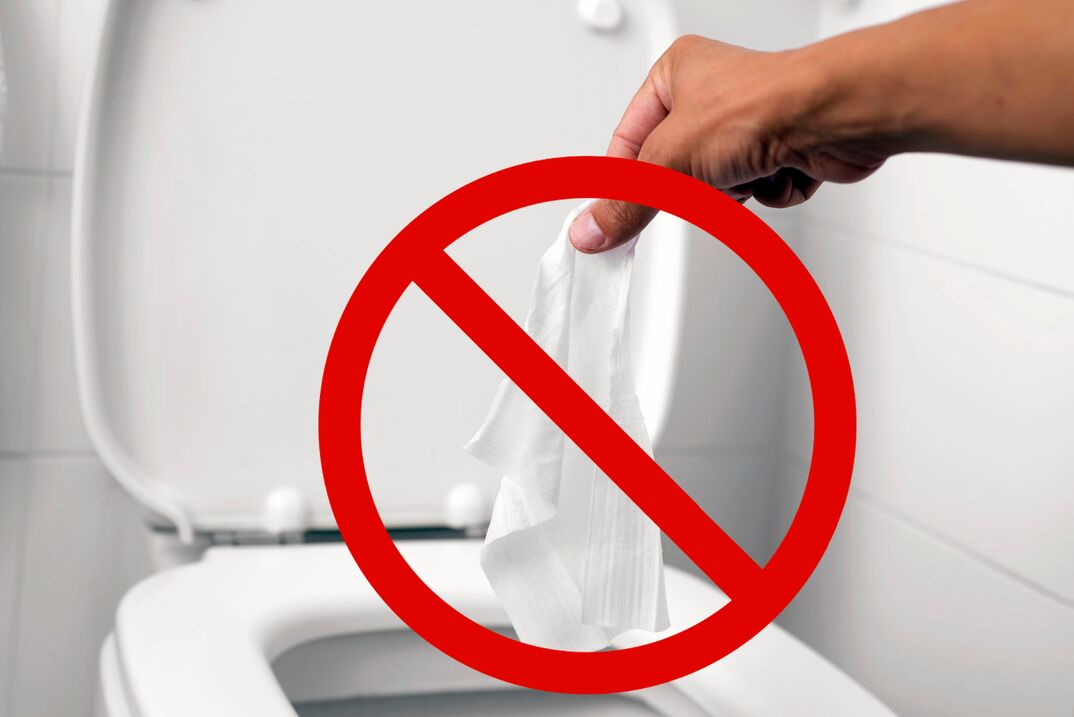
Flushable wipes, marketed as a cleaner alternative to standard cleaning wipes, often cause problems when they clog pipes and pumps
Without government regulations determining a product’s eligibility for use in plumbing systems, it is impossible to know whether the label “flushable” is accurate. Even if a wipe does flow out of the home and into the sewer main, it may clog pumps or cause other issues at wastewater treatment facilities. In other words, not all “flushable” wipes are actually flushable.
In order to determine whether flushable wipes are truly flushable, Ryerson University conducted a series of tests on 101 products, including 23 “flushable” wipes. According to the findings, none of these products passed the test. This indicates that a rigorous testing process is needed before manufacturers can claim that their product is flushable in order to help protect the local infrastructure and homeowners’ plumbing systems.
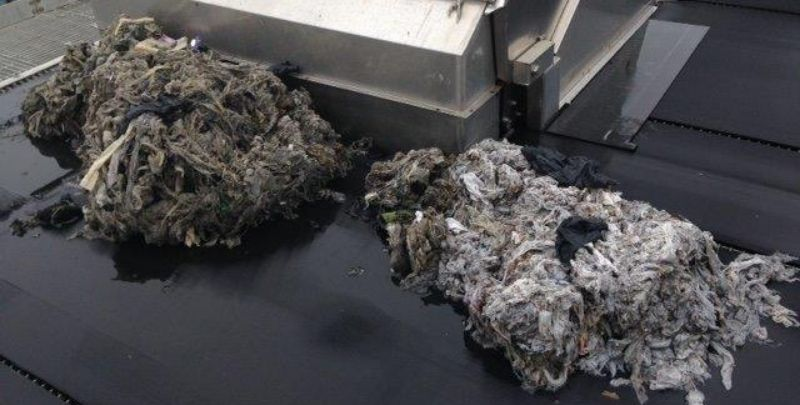
Are Flushable Toilet Wipes Safe to Use?
Flushable wipes are designed to be disposed of by flushing them down a toilet. Most of these products are similar in design to toilet paper, but rigid or plastic-like in texture. The fact that they can be flushed identifies them as being suitable for disposal, but their design means that they often don’t disintegrate completely and can clog plumbing systems.
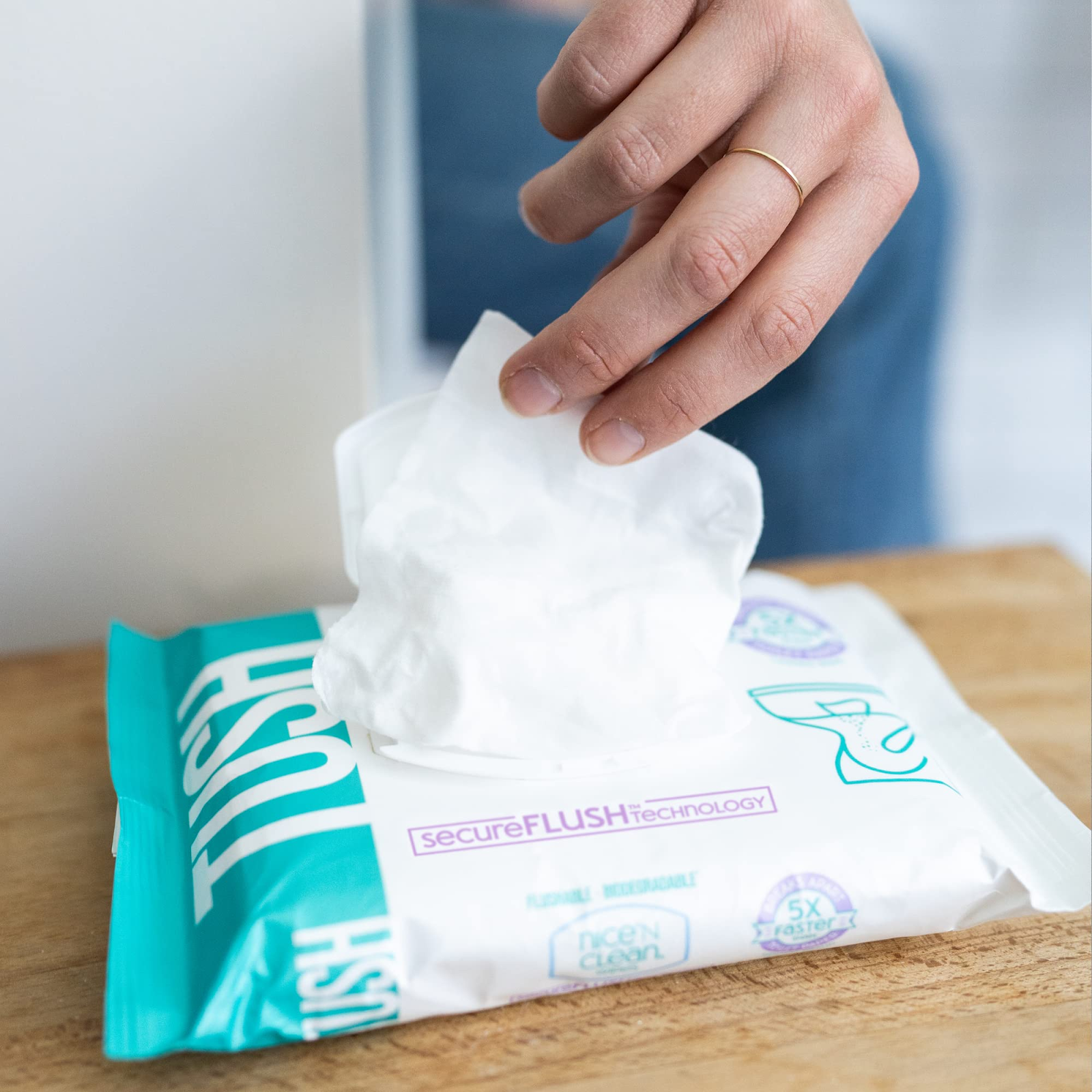
Flushable wipes are designed to disintegrate in water
Toilet paper is designed to disintegrate when it comes into contact with water, causing it to break down into small pieces. In contrast, flushable wipes remain in one piece as they pass through the plumbing system and out into the municipal wastewater system. This can lead to clogs in residential plumbing systems and cause overflow in municipal systems, where flushable wipes bind with other debris, forming massive clogs that reduce the flow of water and filtration capabilities of the wastewater system.
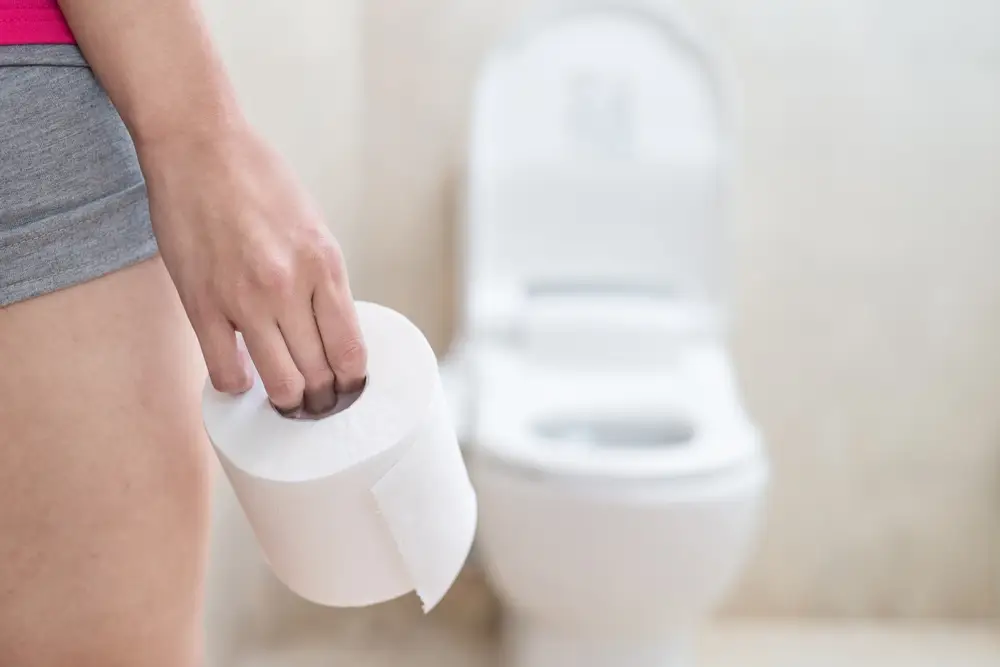
Flushable wipes clog residential plumbing and cause overflows in municipal systems
In fact, a study conducted in Ireland found that 50 percent of flushable wipes tested contained polyethylene terephthalate (PET), which is a synthetic polymer that actually slows the breakdown process. Flushable wipes and standard wipes are also primary contributors to the ongoing problem of microplastic buildup in the waterways and oceans.
What Can You Safely Flush Down the Toilet?
People flush down everything from wet tissues to entire shopping lists—but they shouldn’t. When people flush things that should not go in the toilet, such as hair and paper towels, it causes blockages.
Flushable wipes—which are often marketed as a convenient alternative to toilet paper—pose a risk to residential and municipal plumbing systems, as well as the hazardous effects of microplastics on marine life. Flushing such products down a toilet is ill-advised because it can clog pipes and cause sewage overflows. Other products that should not be flushed down toilets include paper towels, feminine sanitary products, family planning products, cooking grease, and household waste like paint.

You should not flush any wipes down the toilet
To avoid clogs and further damage to the plumbing of the home, it’s important to understand that only bodily wastes and toilet paper should be flushed down a toilet. Also, keep in mind that flushable wipes are not recyclable, so they must be thrown into the trash bin for proper disposal.
Wipes are a brilliant invention because they make our lives easier, thanks to the ingenuity of their inventors and wet wipe manufacturers. Let’s use them responsibly, and not flush them down the toilet!









